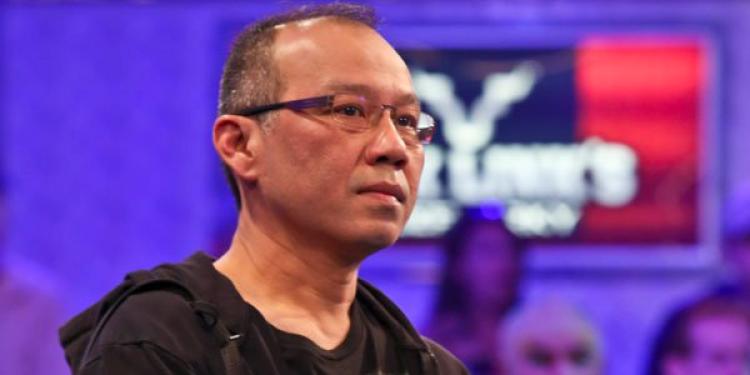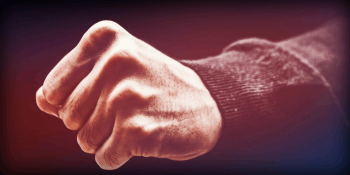Hong Kong Gambler Paul Phua Linked to Malaysian Government
Posted: January 8, 2015
Updated: October 6, 2017

The FBI has accused Paul Phua of membership in the 14K Triads. According to the Malaysian Home Minister, those charges are false.
On July 14, 2014, Paul Phua and seven other men were arrested at the Caesar’s Palace Hotel in Las Vegas. A Malaysian national, Phua was accused of masterminding an illegal internet betting ring specializing in taking wagers on World Cup matches.
It came to light that Phua and his crew came to Las Vegas after being booked on illegal gambling charges in Macau. The men posted bail and bought tickets for the US, where they continued their operation.
That’s when the story got interesting. Who posted bail for Phua and his son? American poker room legend Phil Ivey and fellow pro Andrew Robl, who put up a combined $2.5 million to bail out Phua and his son. The two remain in lockup, as Immigration and Customs Enforcement took custody of them after bail was posted.
US authorities accuse Phua of being gang member
Phua ran an extensive operation. Citing data collated from computers seized by the group, court documents assert a “grand total” of HK$2.7 billion was wagered with them. American federal prosecutors alleged they made a profit of US$13 million in June and July on football bets.
US authorities then accused Phua of being a member of the 14K Triads, one of Hong Kong’s most powerful criminal gangs. They allege that he used he used connections in the criminal underworld to attract wagers for his betting operation.
The FBI maintains that Phua’s status as a Triad member was based on information given by the Royal Malaysian Police force to the FBI’s representative in Kuala Lumpur. Here is an excerpt from the 2008 report:
The RMP has identified the 14K Triads as a local organised crime syndicate involved in illegal drugs, illegal gambling and money laundering activities in Malaysia … The RMP has also identified Malaysian Phua Wei Seng as a 14K Triad member.
Phua linked to Malaysian Home Minister
After Phua was accused of being a member of the 14k Triads, his lawyers sought support from Malaysian Home Minister Datuk Seri Ahmad Zahid Hamidi. Hamidi wrote a letter openly contradicting the FBI report, which was supposedly based on information given by Malaysian police.
Hamidi drafted a letter bound for a federal court in Las Vegas, where Phua still faces charges. Hamidi’s December 18 letter stated the following:
Mr Phua is neither a member nor is he associated with the ‘14k Triad’ … Mr Phua has, on numerous occasions, assisted the Government of Malaysia on projects affecting our national security and accordingly we continue to call upon him to assist us from time to time and as such we are eager for him to return to Malaysia.
The letter was met with consternation by Hamidi’s political opponents as well as the Malay rights group Perkasa, who have accused Hamidi of official corruption. Shortly after the letter was made public, Putrajaya—Malaysia’s federal administration—retracted it and instructed Phua’s lawyers as well as federal prosecutors to ignore it.
• Paul Phua arrested by FBI agents in July, 2014
• Phua is accused of being a member of the 14K Triads
• Home Minister: Phua worked on “national security projects”
Online betting in Malaysia is illegal according to Malaysian gambling laws, and federal authorities are currently undertaking a broad campaign to shut down illegal gambling activities. Hamidi’s letter has been an embarrassment for the Putrajaya, which has presented a clean image to the public.
While Phua’s alleged “national security projects” weren’t specified by Hamidi, any official link to him reflects badly on the government. Phua is a well-known figure of ill repute, even if he has never been convicted of a crime. Before his current career has a Hong Kong businessman he was one of Macau’s leading junket operators.
Phua’s lawyers casting doubt on police report, and search
Phua’s lawyers are building their case around purported irregularities in the raid on the defendant’s villa at the Caesar’s Palace. On the day of the raid the FBI instructed hotel management to shut down the villa’s internet connection.
When one of the defendants called for tech support, the FBI sent in undercover agents disguised as tech support staff. The agents wore hidden body cameras, which they used to record the interior of the villa. Video footage was presented as evidence to a federal judge, who then signed a warrant authorizing the raid.
Phua’s lawyers are claiming that this was violation of the Fourth Amendment, which protects against “unlawful searches and seizures.” By tampering with the villa’s internet connection and then posing as tech support, the lawyers assert, the agents entered the villa legally under false pretenses.
The FBI responded with a document defending the legality of the raid:
Ample reason to suspect defendants of illegal bookmaking before raising any ruse in this matter. Law enforcement began to investigate defendants after Caesars personnel saw things inside defendants’ villas that caused them to be concerned with the possibility of criminal activity…Law enforcement has long been permitted to obtain consent by posing as a confederate, business associate or service provider.












